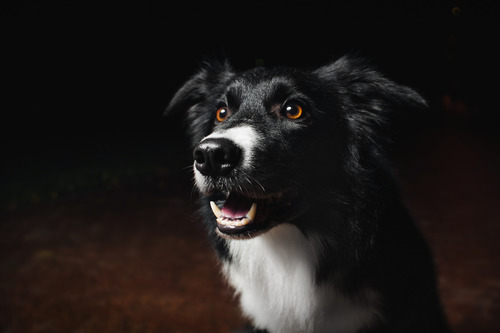If you’ve noticed your dog panting at night, it might have left you concerned and wondering about the possible reasons. Panting can be normal in dogs, but when it occurs at night, it often needs further attention. This blog explores common causes and when you might need to consult a veterinarian. We’ll help you understand what could be behind this behavior, and guide you on what to do next. If you’re worried about your dog’s health, remember to reach out to Montgomery Veterinary Associates at our Vaughn Road location at (334) 271-1003, our Carter Hill location at (334) 269-2508, or request an appointment online.
Normal vs. Abnormal Panting
Panting is a common way for dogs to regulate their body temperature as they do not sweat like humans. However, when your dog pants excessively during the night, it might indicate something more than just trying to cool down. Identifying abnormal panting is crucial; look for louder, harsher panting sounds and signs of distress or anxiety. If your dog shows these symptoms, it could be a sign of underlying issues.
What Causes Excessive Panting in Dogs at Night?
Heat and Humidity Factors
The environment plays a significant role in why a dog might pant at night. High room temperatures or humidity can make it uncomfortable for your pet. Ensure your dog’s sleeping area is well-ventilated and kept at a comfortable temperature. Consider using fans or air conditioning during warmer months to provide relief.
Stress and Anxiety
Dogs often pant when they are stressed or anxious. Changes in routine, such as a new family member or a move to a new home, can cause nighttime anxiety. Creating a calming bedtime routine and providing a quiet, comfortable sleeping area can help alleviate stress-induced panting.
Health-Related Causes of Nighttime Panting
Pain and Discomfort
Pain is a common reason dogs may pant at night. Conditions such as arthritis, injuries, or internal discomfort can make resting difficult. If you suspect your dog is in pain, observing additional symptoms such as limping or reluctance to move can help identify the problem.
Respiratory and Cardiovascular Issues
Respiratory conditions, like congestive heart failure or lung disease, can cause dogs to pant heavily. Cardiovascular problems increase the effort your dog’s heart must make to circulate blood, leading to panting. These are serious conditions that require veterinary attention.
Other Medical Concerns
Various medical issues, such as hormonal imbalances like hyperthyroidism, can lead to excessive panting. It’s important to monitor any accompanying symptoms like increased appetite or weight loss and report these to your vet.
When to Contact Your Veterinarian
It’s essential to monitor and record any other symptoms that accompany your dog’s panting, such as coughing, lethargy, or changes in appetite. This information will be incredibly helpful to your veterinarian in diagnosing the cause of your dog’s distress.
Preparing for a Vet Visit
When you call Montgomery Veterinary Associates, be ready to describe the panting and any other symptoms. Be as detailed as possible to help the veterinary team understand your dog’s condition. If your dog’s panting at night is a new development, it might be indicative of a serious issue requiring prompt veterinary care.
Understanding Your Dog’s Nighttime Panting
While dog panting at night can sometimes be benign, it’s always better to be cautious and consult your veterinarian if this behavior becomes a regular occurrence. Understanding the underlying causes of nighttime panting can help ensure your dog stays comfortable and healthy. If you’re concerned, don’t hesitate to contact us at Montgomery Veterinary Associates. Call our Vaughn Road location at (334) 271-1003, our Carter Hill location at (334) 269-2508, or request an appointment online today. We’re here to provide the care your pet needs, day and night.






